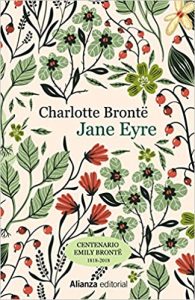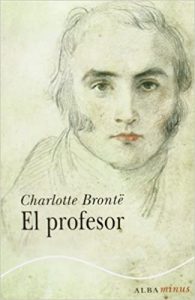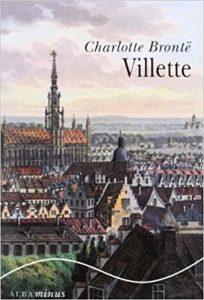El surname Brontë It stands out literary with its almost mystical aura (at times rather disconcerting fog) that makes it difficult to consider any of the sisters ahead of the others.
Because Emily achieved that universality with her Wuthering Heights and Anne, who died even before the 30 in which Emily died, also wrote brilliant pages of world literature.
But the fact is that even if it was to survive that decade longer than her sisters, Charlotte Brontë was able to extend her work and focus the entire narrative imprint of such a creative family.
The sorrowful personal circumstances of the sisters and their unfortunate fate eventually aroused a greater literary fascination. Thanks precisely to the fact that Charlotte revealed all the pseudonyms of her sisters, discovering that ungrateful literary evolution of the female writer so many times forced to change the signature of her works towards the masculine in order to be considered by readers.
Top 3 Recommended Novels by Charlotte Brontë
Jane Eyre
One of those works of the most authentic feminism that relates to the fullest vision of women in a time when she still carried the blame for almost everything. But Charlotte knew that literature was a channel for her inner revolution as well as a channel for general awareness.
A novel that starts with the name of its protagonist already shows that capital interest in making the character the stage, transition, plot and outcome. Jane undertakes the journey towards her liberation trying to win plots from the most intimate, giving herself freely to emotions and feelings. Owner of a singular temperament since her complicated childhood as an orphan, first in charge of an unloving aunt and later in the Lowood school , Jane Eyre achieves the position of governess at Thornfield Hall to educate the daughter of her wayward and peculiar owner, Mr. Rochester. Little by little, love will weave its web between them, but the house and the life of Rochester keep a shocking and terrible mystery.
Professor
William Crimsworth, in his desire for independence, despises the tyrannical protection of his relatives and embarks for Brussels, where he gets a position as a teacher of English in a boarding school and must choose between the attentions of the brilliant and cunning director and the timid admiration of a young orphan who, like him, struggles to overcome himself and get out of poverty.
The work ethic articulates the ideology of the novel, but it also highlights the lonely and painful effort to maintain fidelity to one's own principles in an oppressive and prejudiced world, governed by dissimulation, vigilance and affectation.
Villette
Lucy Snowe, without family, without money, without position, goes to work in a boarding school in a foreign city, Villette. His only companions are the personifications that his interior adopts: Memory, Imagination, Emptiness, Hopelessness, Reason.
At the boarding school his identity is subjected to inquisition. Madame Beck, the director, holds her to her watchwords: espionage and surveillance; Ginevra Fanshawe, mocks or flatters her, capriciously; Dr. John, young and handsome, seductive and melancholic, thinks she is ill. Professor Paul Emanuel, a "severe little man" who hides, under his angry temper, a sacrificed heart, claims to have known her from the first moment he saw her ; even a ghost, that of a nun who was secluded for a forbidden love, harasses and terrifies her.




2 comments on “The 3 best books by Charlotte Brontë”